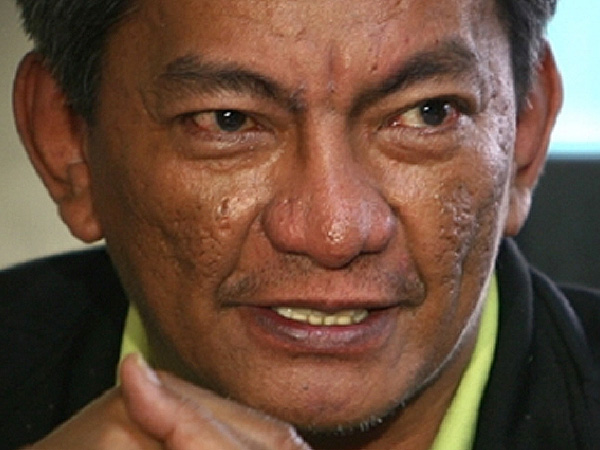Governors brace for court battle over mining EO
At least 40 governors plan to challenge the Aquino administration’s new mining policy in the Supreme Court the moment it is signed, according to Albay Governor Joey Salceda.
Salceda on Friday said that local government officials were opposing the mining policy that President Benigno Aquino was supposed to sign on Friday because it would put them in an adversarial position against the national government.
The mining policy also disregards the autonomy and independence of local governments in enacting their own ordinances in favor of national laws and regulations involving the mining industry, Salceda said.
Salceda, a member of the ruling Liberal Party, said the mining policy stressed the primacy of national laws over local laws and ordinances. As such, the national government can override laws adopted by local officials opposed or supportive of mining.
“We consider that provocative,” Salceda told a news forum organized by the International Women’s Media Forum. “In other words, it’s not conducive to a productive national conversation on the policy.”
Article continues after this advertisementSalceda said the new policy would “breed inequality of income and assets” and would “destroy the countryside.”
Article continues after this advertisementThe new mining policy, he added, is against the countryside and local governments.
Salceda said at least 40 provinces had passed ordinances that restrict or regulate or oppose mining, especially metallic mining and large-scale mining.
Albay is not accepting mining applications, Salceda said.
No invalidation
The executive order, Salceda said, cannot invalidate local ordinances against mining.
If the order is signed with this provision, local government executives will go to the Supreme Court to challenge its legality, he warned.
“Forty governors are opposing it,” he said.
“An executive order does not destroy an ordinance, they have to bring it to the Supreme Court to do a shortcut,” Salceda said.
“That executive order will not make our ordinances disappear because they are articulations of democratic aspirations,” he said.
Salceda said Malacañang knew that local officials opposed the new mining policy. This could be the reason why the President has not signed it yet, he said.
The local resistance comes at a time when the administration needs to muster as much support as it can get from the local governments to keep its hold on power in the provinces in next year’s midterm elections.
No benefits
Salceda said local governments distrusted the national government and the mining companies because they did not feel the benefits of mining.
Profit sharing between the national government and the local governments favors the national government, he said.
Albay, which hosts the Rapu-Rapu Polymetallic Project, only received P3.4 million from the mining company’s revenues, Salceda said. But the company’s export earnings reached P7.7 billion, he said.
The mining policy “is a failure when it comes to intergenerational sharing of resources,” Salceda said.
“The basic principle why you allow mining is because it is for everyone, including the next generation,” he said. “Therefore you should be able to raise sufficient revenues so that future generations would benefit from it.”
Salceda served on the economic team of then President Gloria Macapagal-Arroyo but supported Mr. Aquino in the 2010 presidential election.
“The revenues you raise could be invested in things that would benefit at least three generations after you, [such as] roads, bridges, enterprise development,” Salceda said. “But you can’t do that with P3.4 million.”
Tattered record
Salceda said the mining industry’s track record in the Philippines was in tatters.
Previous mining companies, he said, had failed to rehabilitate their abandoned mine sites.
Mining operations, which are often militarized, breed tension in communities, he said.
Change of plans
The President was supposed to sign the much-delayed executive order spelling out his administration’s mining policy on Friday. But Malacañang said the order needed more fine-tuning.
The Department of Environment and Natural Resources (DENR), which was in charge of the drafting of the order, had planned the issuance for early this year.
The plan was to have a comprehensive mining policy that would spell out new regulatory and tax rules for mining companies, but it was shelved in February.
Instead, the DENR said Malacañang would issue a policy statement that would lay out the administration’s direction on the mining sector.
The change of plans also did away with controversial provisions on the valuation of natural wealth and taxation, pending more legal studies.
